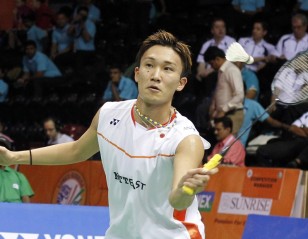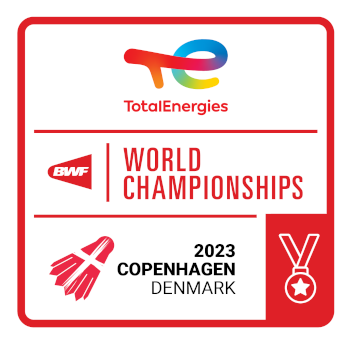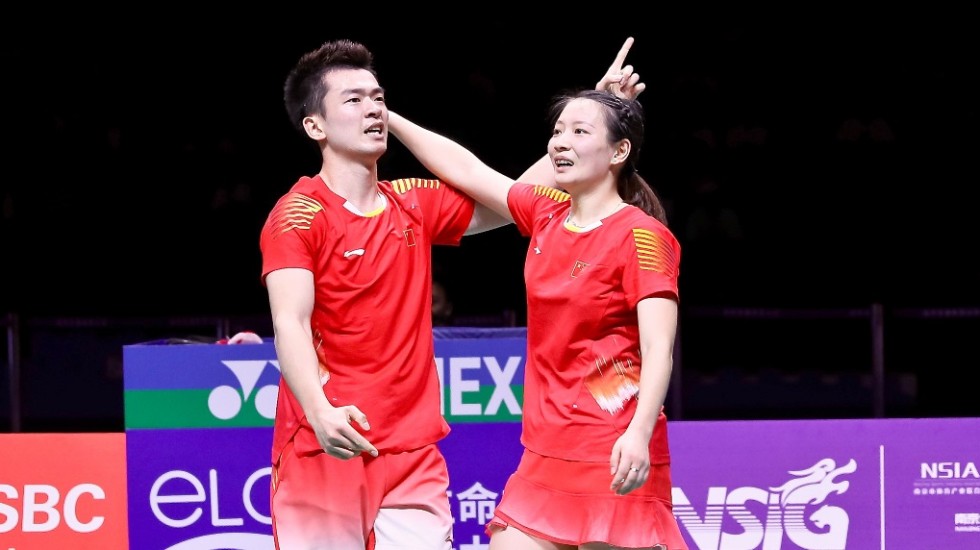
Stamp of Class – Mixed Doubles Review: TOTAL BWF World Championships 2018
Zheng Siwei and Huang Yaqiong’s title victory at the TOTAL BWF World Championships 2018 is the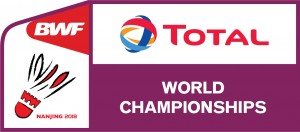 stamp of class, as it were, on an extraordinarily successful partnership that has matured in quick time.
stamp of class, as it were, on an extraordinarily successful partnership that has matured in quick time.
Zheng and Huang’s (featured image) partnership hit the high notes as soon as they came together in November last year. The two had had successful stints with their former partners – Zheng with Chen Qingchen and Huang with Lu Kai – but three straight title wins last year signalled that this was a more complete pair than their earlier partnerships.
Yet, in the run-up to the World Championships this year, Zheng and Huang’s gold medal was anything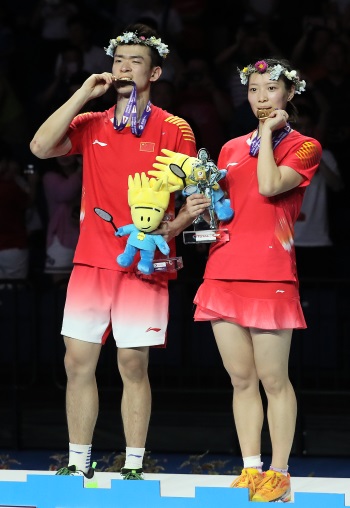 but certain. In the two HSBC BWF World Tour Super 1000 events – the Yonex All England and the BLIBLI Indonesia Open – they had finished runners-up and semi-finalists respectively. They had won two of six events, and pairs like Hong Kong’s Tang Chun Man/Tse Ying Suet, Japan’s Yuta Watanabe/Arisa Higashino and Asian champions and compatriots Wang Yilyu/Huang Dongping were seen as equal contenders for the title.
but certain. In the two HSBC BWF World Tour Super 1000 events – the Yonex All England and the BLIBLI Indonesia Open – they had finished runners-up and semi-finalists respectively. They had won two of six events, and pairs like Hong Kong’s Tang Chun Man/Tse Ying Suet, Japan’s Yuta Watanabe/Arisa Higashino and Asian champions and compatriots Wang Yilyu/Huang Dongping were seen as equal contenders for the title.
And yet, the fact that Zheng and Huang captured the title for the loss of just one game during the week – to compatriots Zhang Nan/Li Yinhui – showed that they had evaded the minefields that had plagued similar hot contenders like Marcus Fernaldi Gideon/Kevin Sanjaya Sukamuljo in Men’s Doubles and Tai Tzu Ying in Women’s Singles.
The top seeds cruised into the semi-finals with comfortable wins over Russia’s Evgenij Dremin/Evgenia Dimova; Thailand Open champions Hafiz Faizal/Gloria Emanuelle Widjaja (Indonesia) and Satwiksairaj Rankireddy/Ashwini Ponnappa (India). They had an early setback against Zhang/Li but recovered well (19-21 21-12 21-10). The final, against Wang/Huang had a tight second-game finish with the top seeds’ composure making the difference in their 21-17 21-19 victory.
Wang and Huang had had a tougher route to the final, starting with their three-game win over Indonesia’s Ronald Ronald/Annisa Saufika in the second round, followed by another three-game battle over YONEX All England champions Watanabe/Higashino. Two more difficult challengers loomed – England’s Chris Adcock/Gabrielle Adcock in the quarter-finals and Hong Kong’s Tang/Tse in the semi-finals – but Wang and Huang shut out these threats with surprisingly one-sided victories.
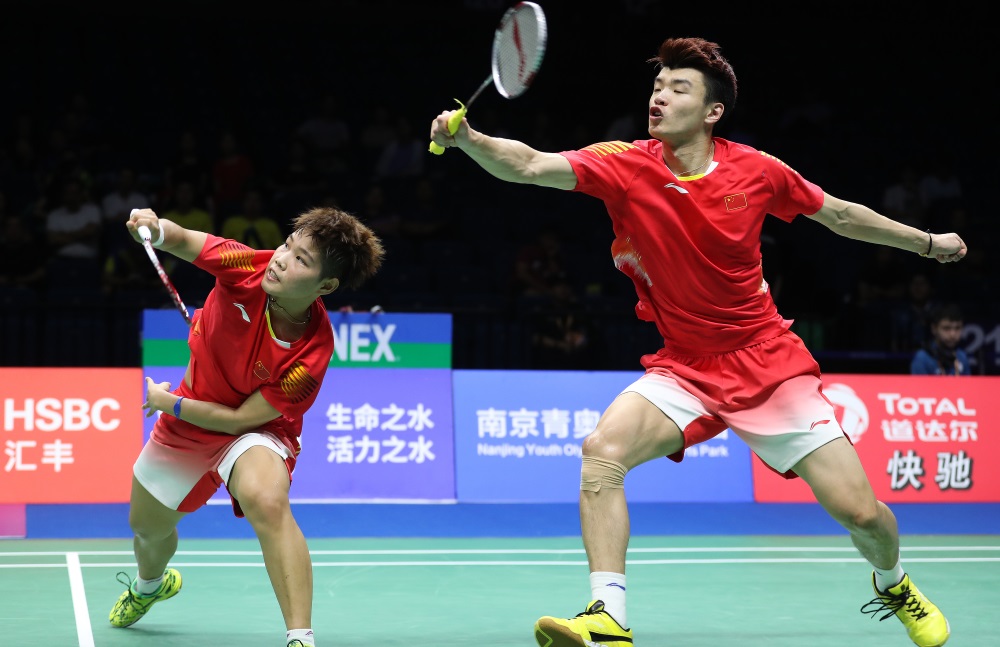
The third Chinese pair in the last-four was Zhang/Li, who held off Danish hopes Mathias Christiansen/Christinna Pedersen in a tight finish in their quarter-finals.
Tang and Tse were among the top contenders in the run-up to the World Championships despite their inconsistent performances this season. But the fact that they had beaten Zheng/Huang in the final of the PERODUA Malaysia Masters in January showed they were capable of going all the way and making history for Hong Kong. However, the Hongkongers had a roller-coaster ride, surviving three match points against Indonesia’s Praveen Jordan/Melati Daeva Oktavianti in the third round, and then needing three games to get past Malaysia’s Chan Peng Soon/Goh Liu Ying in the quarter-finals, before they finally ran out of steam against Wang/Huang.
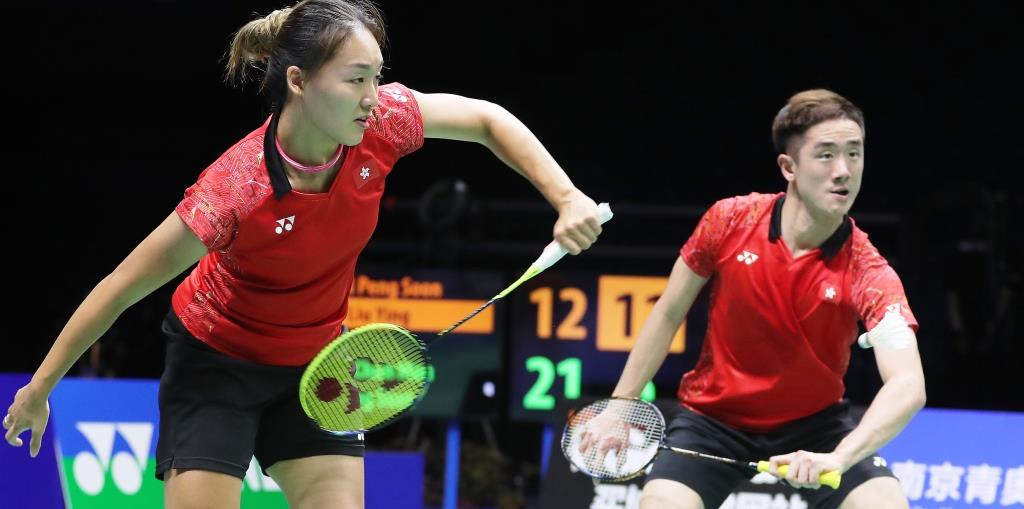
The only non-Asian pairs in the quarter-finals were Chris Adcock/Gabrielle Adcock and Mathias Christiansen/Christinna Pedersen. The Adcocks had trained in China after four back-to-back tournaments in Asia, and had a strong run until they were outgunned by the Asian champions in the quarter-finals.
Perhaps the most-improved pair in the competition was the Indian duo of Rankireddy and Ponnappa, who had three wins over strong competition before falling short against the top seeds. The Indians got the better of Denmark’s Niclas Nohr/Sara Thygesen in their opening round; Germany’s Mark Lamsfuss/Isabel Herttrich in the second, and Malaysia’s in-form duo Goh Soon Huat/Shevon Jemie Lai in the third, to showcase the gains that Indian doubles pairs have made in recent times.
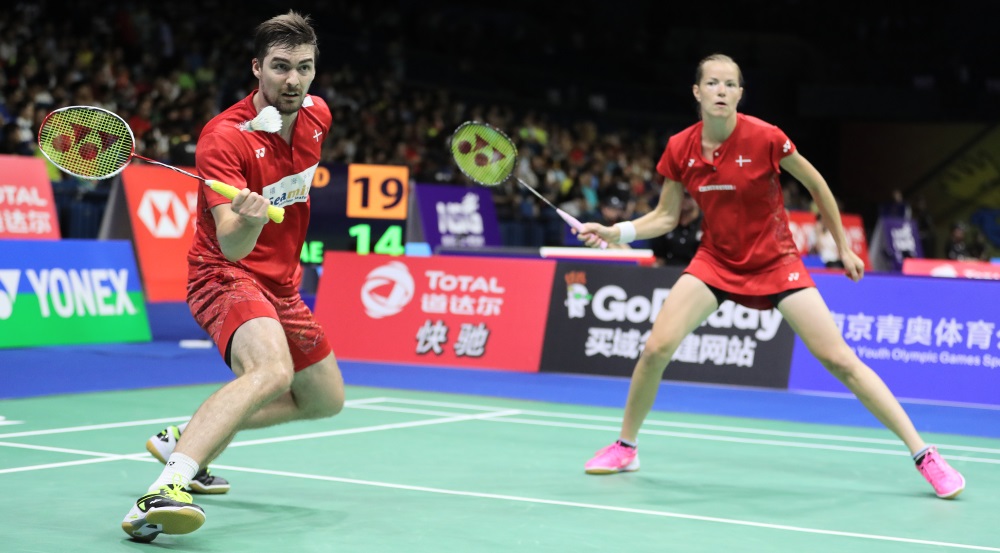
World Championships News
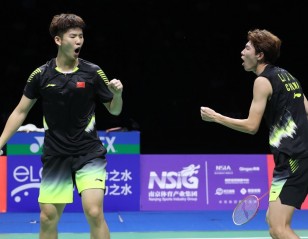
World Champs in Second Place 5 September 2018
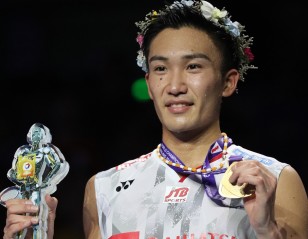
Momota Climbs to Fourth Spot 4 September 2018
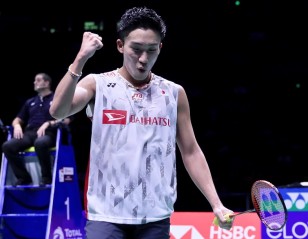
Rebirth of a Star – Men’s Singles Review: TOTAL BWF World Championships... 20 August 2018
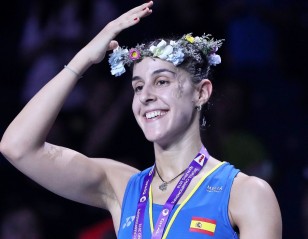
Marin Times it Right – Women’s Singles Review: TOTAL BWF World Championships... 16 August 2018
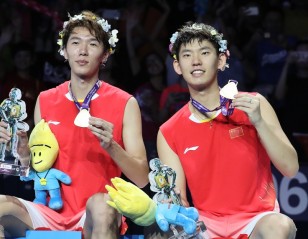
Princes on the Throne – Men’s Doubles Review: TOTAL BWF World Championships... 14 August 2018
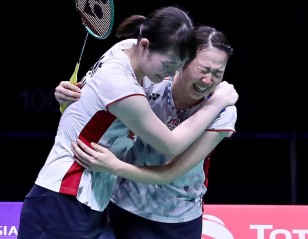
A Record Falls – Women’s Doubles Review: TOTAL BWF World Championships 2018 13 August 2018
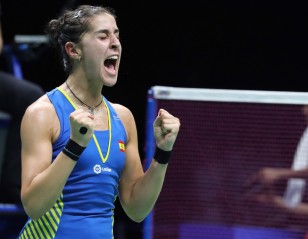
King Kento, Queen Carolina – Singles Finals: TOTAL BWF World Championships 2018 6 August 2018
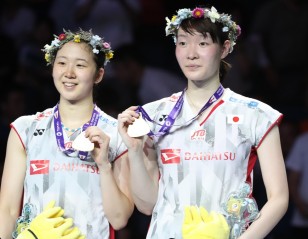
Young Sensations! – Doubles Finals: TOTAL BWF World Championships 2018 5 August 2018
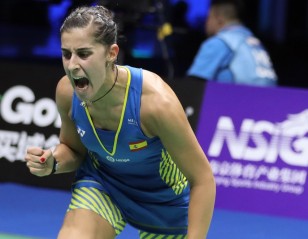
History in the Making – Semi-Finals: TOTAL BWF World Championships 2018 4 August 2018
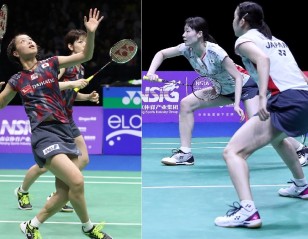
Crowning Glory – Semi-Finals: TOTAL BWF World Championships 2018 4 August 2018
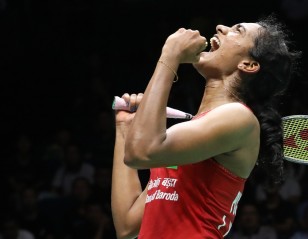
Singles Champions Out! – Day 5: TOTAL BWF World Championships 2018 3 August 2018
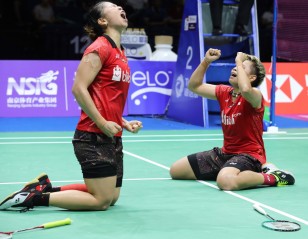
‘Top’-pled! – Day 5: TOTAL BWF World Championships 2018 3 August 2018
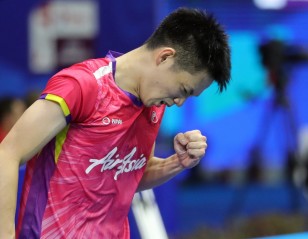
Liew Flies High – Day 4: TOTAL BWF World Championships 2018 2 August 2018
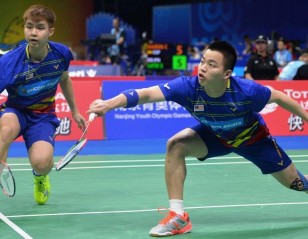
Chia/Soh Shock Selves – Day 4: TOTAL BWF World Championships 2018 2 August 2018
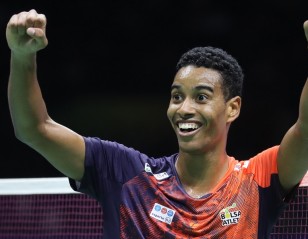
Brazil Express Chugs On – Day 3: TOTAL BWF World Championships 2018 1 August 2018
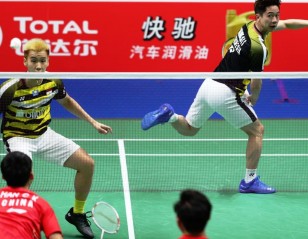
Triumph Under Fire – Day 3: TOTAL BWF World Championships 2018 1 August 2018
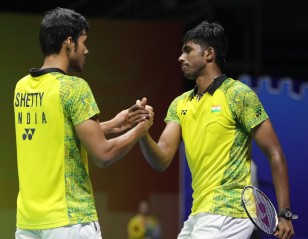
Indians Exact Revenge – Day 2: TOTAL BWF World Championships 2018 31 July 2018
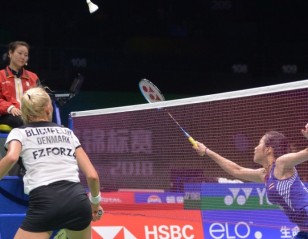
Back from the Brink! – Day 2: TOTAL BWF World Championships 2018 31 July 2018
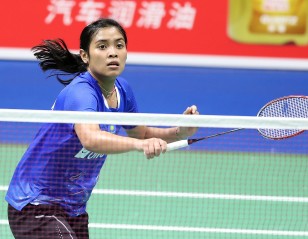
Tunjung Waltzes Into Second Round – Day 1: TOTAL BWF World Championships... 30 July 2018
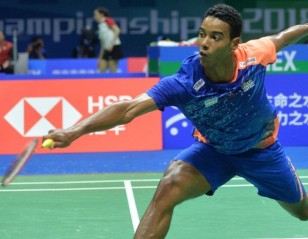
‘Poster Boy’ Profits – Day 1: TOTAL BWF World Championships 2018 30 July 2018
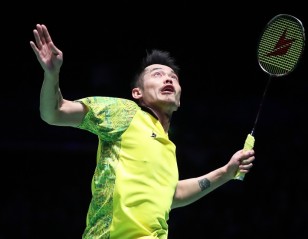
Lin Starts Quest Tomorrow 29 July 2018
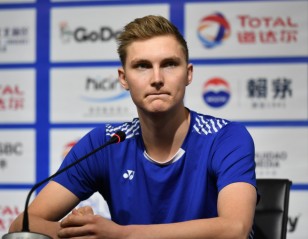
Axelsen: Momota a Complete Player 29 July 2018
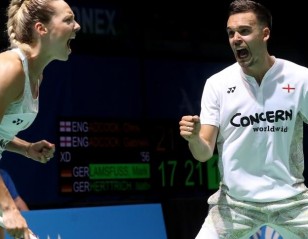
Several Strong Contenders – Mixed Doubles Preview: TOTAL BWF World Championships 2018 28 July 2018
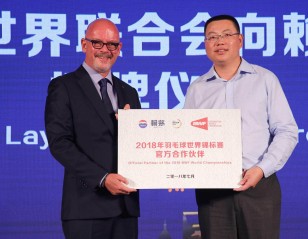
BWF Announces Laymau Partnership 28 July 2018
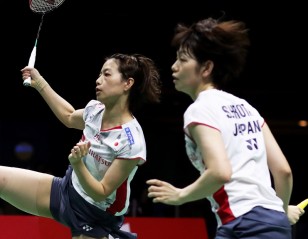
China’s Record Under Threat – Women’s Doubles Preview: TOTAL BWF World Championships... 27 July 2018
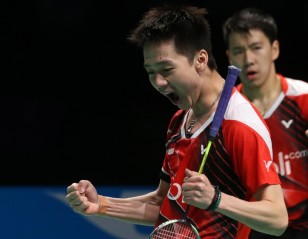
Minions on Fire – Men’s Doubles Preview: TOTAL BWF World Championships 2018 25 July 2018
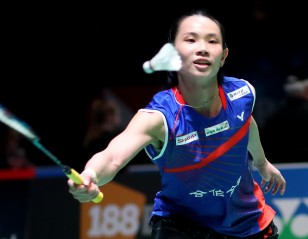
Tai the Frontrunner – Women’s Singles Preview: TOTAL BWF World Championships 2018 24 July 2018
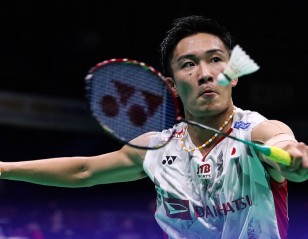
Spotlight on Momota – Men’s Singles Preview: TOTAL BWF World Championships 2018 23 July 2018
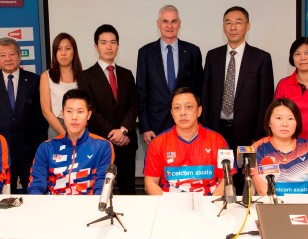
Leverdez in Lee’s Way…Again – TOTAL BWF World Championships 2018 Draw 17 July 2018
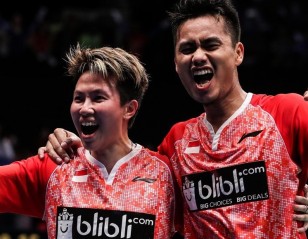
Ahmad/Natsir To Skip Title Defence 5 June 2018
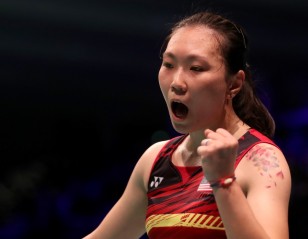
Beiwen Zhang Qualifies for World Championships 15 May 2018
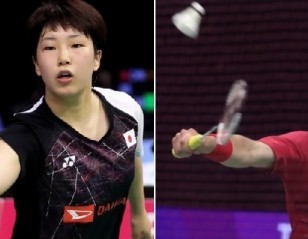
Momota Qualifies for ‘Worlds’ 27 April 2018
